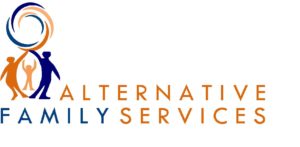Transitional Age Youth
Transition Age Youth Programs
Program Scope
AFS's Transition Age Youth (TAY) programs cater to various groups, ensuring a comprehensive suite of services tailored to each individual. Many of these young adults have grappled with considerable mental health challenges stemming from past traumas, including histories of neglect and abuse.
Core Principles
- Cultural Sensitivity: All services are designed to be culturally relevant and appropriate.
- Individualized Approach: We recognize each client's unique challenges, providing bespoke and flexible solutions.
- Holistic Support: AFS addresses not only immediate practical concerns, like employment and financial literacy, but also profound emotional issues, encompassing drug use, mental health challenges, homelessness, and instances of sexual exploitation.
- Challenges Post-Foster Care: While youth can remain in foster care until they are 21 years old, many former foster youth grapple with substantial obstacles in their later years. AFS is unwavering in its commitment to forging permanent, safe, and stable connections for every client.
- Supportive Services: AFS aims to pave the way for a smooth transition from foster care to independent adulthood. Our services provide these young adults with the emotional, social, and practical tools essential for self-reliance and growth.
TAY Programs
AFS proudly offers three distinct TAY programs, each meticulously designed to cater to our youth's diverse needs and aspirations.
AFS Lifelong Connections Project for Transition Age Youth (TAY)
Background
Many young adults leaving foster care face profound isolation due to traumatic experiences and frequent relocations. They often lack the foundational support networks that are crucial during transitions.
Program Essence
The AFS Lifelong Connections Project empowers these Transition Age Youth (TAY) with the vital skills to recognize, nurture, and maintain enduring relationships crucial for a well-rounded and stable life. These enduring ties, referred to as their "Lifelong Connection," involve dedicated individuals or families who consistently present themselves in the TAY's life. Such connections are pivotal as TAY navigates challenges related to social integration, emotional well-being, health, employment, education, and housing. Remarkably, about 90% of eligible TAYs engage in the LCP.
LCP's Core Aims
- Foster Lifelong Ties: Ensure each participating TAY cultivates and maintains at least one enduring connection.
- Promote Stability: Enhance TAY's ability to navigate their communities independently and confidently.
- Mentorship Over Intervention: Prioritize mentorship and support from Lifelong Connections, reducing the need for formal crisis interventions.
- Skill Building: Equip TAY with the capabilities to establish and sustain positive adult relationships.
